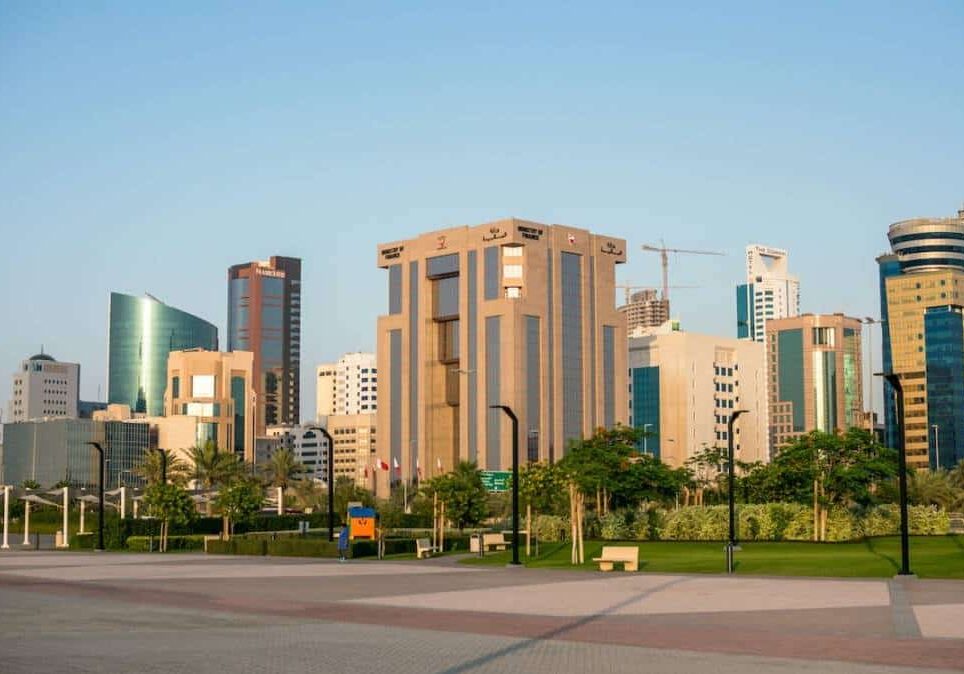
Flexibility and security are more important than ever. Citizenship by donation has emerged as one of the fastest and most efficient ways to obtain a second passport, minus the residency hurdles that comes with traditional immigration processes.
This approach allows eligible individuals to acquire citizenship in a foreign country by making a non-refundable financial contribution to designated government funds. In return, applicants gain access to enhanced global mobility, tax advantages, and a secure backup plan in times of uncertainty.
This guide explores how Citizenship by Donation (CBD) works, lists the most popular citizenship by donation countries, and compares the costs, benefits, and application processes involved.
What is citizenship by donation?
Citizenship by Donation is a straightforward path to acquiring citizenship by contributing directly to a country’s national development, typically through a designated government fund.
These programs fall under the umbrella of Citizenship by Investment (CBI) and are a subset of economic citizenship programs, which provide citizenship in exchange for a meaningful economic contribution.
Instead of investing in real estate or starting a business, applicants can donate a set financial amount, usually starting at $100,000 USD, toward national priorities that include:
- Education and public health systems
- Infrastructure development
- Disaster relief and recovery
- Economic transformation initiatives
Well-known examples include the St. Kitts and Nevis Sustainable Island State Contribution (SISC), the Dominica Economic Diversification Fund (EDF), and the Grenada National Transformation Fund (NTF).
Applicants must also undergo a thorough due diligence process to ensure they meet legal, financial, and character standards. Once approved, citizenship is typically permanent, inheritable, and grants full rights in the issuing country, including visa-free travel to dozens, or even over a hundred, countries worldwide.
How Citizenship by Donation Works
The citizenship by donation process is designed to be straightforward, fast, and legally sound. While each country’s program has its own specific rules, most follow a similar structure centered around a non-refundable financial contribution to a government-approved fund.
Step-by-step process:
- Choose a program: Select your preferred country based on budget, travel freedom, family inclusion, and processing time. Popular citizenship by donation countries include Dominica, St. Kitts and Nevis, Grenada, and Antigua and Barbuda.
- Hire a licensed agent or consultant: Governments require applicants to work with licensed advisors or authorized agents. Professional firms can handle documentation, compliance, and application tracking from start to finish.
- Submit initial documentation: Provide identification, proof of funds, police clearance, and medical reports. All applicants must undergo due diligence, a background screening process that verifies financial and personal integrity.
- Make the donation: Once pre-approved, you make a non-refundable financial contribution to the country’s designated government fund.
- Receive your citizenship certificate and passport: After donation confirmation and final approval, you receive a Certificate of Naturalization followed by a valid passport. The processing times can vary wildly from a few months to a year.
In most of these programs no physical presence is required, meaning the donator is not obligated to reside in or visit the country. This makes the route ideal for investors who don’t want to be tied down and need to be globally mobile for business purposes.
Benefits of Citizenship by Donation
- Economic growth: Citizenship by Donation programs often require substantial investments into the country’s economy, either directly through donations to a national development fund or indirectly through investments in real estate or business ventures. This influx of capital can lead to economic growth, infrastructure development, and job creation.
- Increased revenue for the government: The funds generated from these programs can provide governments with additional revenue that can be used for public services, such as education, healthcare, and infrastructure projects, benefiting the citizens of the country.
- Global travel freedom: For investors, one of the most attractive benefits is enhanced global mobility. Many citizenship by donation options offer passports that allow visa-free or visa-on-arrival access to numerous countries worldwide, making international travel easier and more convenient.
- Tax benefits: Obtaining citizenship through donation can offer tax advantages. Some countries have no income tax on worldwide income, no taxes on wealth, inheritance, or gifts, which is appealing for high-net-worth individuals.
- Security and stability: Having a second citizenship can provide a sense of security and stability, offering a safe haven in times of political or economic instability in one’s home country. It acts as insurance for the investor and their family to have access to a peaceful and stable environment.
Top 5 Citizenship by Donation Countries in 2026
Several countries operate Citizenship by Donation (CBD) programs as part of their broader Citizenship by Investment (CBI) or economic citizenship programs.
Below are some of the most reputable and widely used citizenship by donation countries, each with their own government fund and eligibility criteria:
1. Dominica
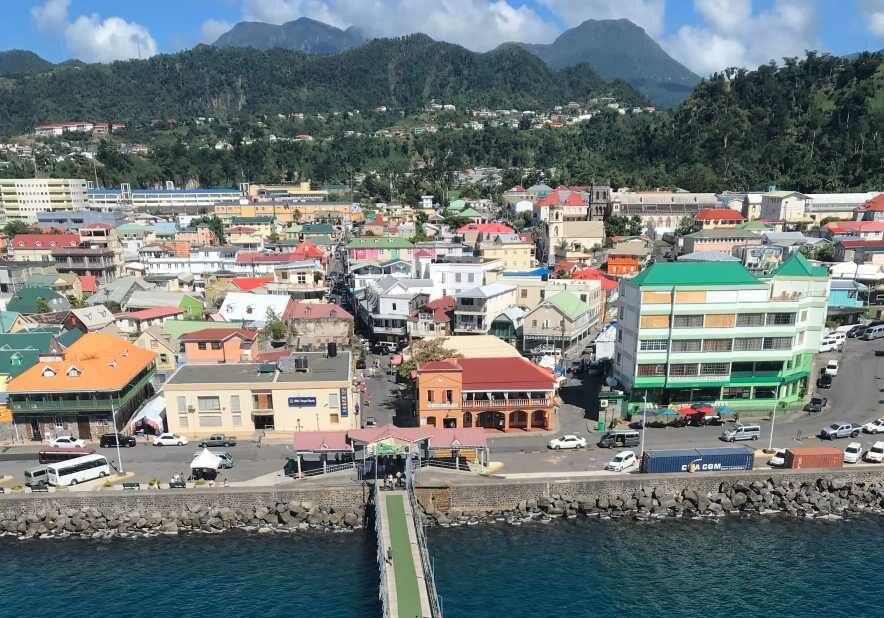
Fund: Economic Diversification Fund (EDF)
Minimum donation: $200,000 (single applicant), $250,000 (family of up to four)
Dominica offers one of the longest-standing and most affordable citizenship by donation programs, in place since 1993. Administered through the Economic Diversification Fund (EDF), this program allows individuals and families to obtain citizenship by making a non-refundable contribution to national development.
Funds are used to support public infrastructure, education, healthcare, and climate resilience. Alternatively, applicants may choose a real estate investment route, but this option requires a higher minimum investment and must be held for a set number of years.
All applicants are subject to strict due diligence checks. The Dominica Citizenship by Investment program is praised for its efficiency, with processing timelines as short as 3–6 months and no residency requirements.
2. St. Kitts and Nevis
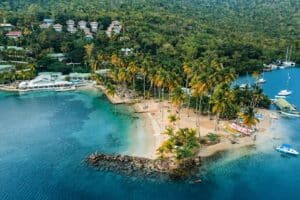
Fund: Sustainable Island State Contribution (SISC)
Minimum donation: $250,000 (single applicant or family of up to four)
The Sustainable Island State Contribution (SISC) is the centerpiece of St. Kitts and Nevis’s Citizenship by Investment Program, making it one of the most recognized economic citizenship programs globally.
Through a non-refundable financial contribution to the SISC, applicants help finance national projects across health, education, renewable energy, and tourism development.
There’s also a real estate investment option involving shares in government-approved projects, but the donation route remains more direct and cost-effective for most. No physical residency or interviews are required, and family members can be included under one application. Processing time is around 4 to 6 months.
3. Antigua and Barbuda
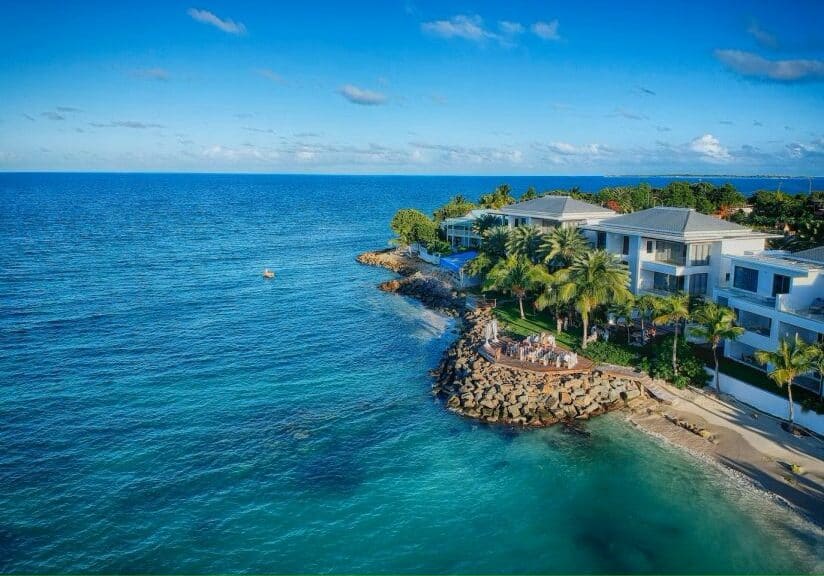
Fund: National Development Fund (NDF)
Minimum donation: $230,000 (single applicant or family of up to four)
The Citizenship by Donation route under Antigua and Barbuda’s Citizenship by Investment program is centered around a non-refundable contribution to the National Development Fund (NDF). This fund supports entrepreneurship, innovation, and public projects including infrastructure, education, and health services.
Applicants also have access to alternative routes such as real estate investment or contributions to the University of the West Indies Fund (for large families), though the NDF remains the most affordable.
The program offers visa-free or visa-on-arrival travel to over 150 countries and applicants are only required to reside a minimum a 5-day in Antigua and Barbuda. The application is subject to comprehensive due diligence to ensure the integrity and eligibility of each candidate.
4. Grenada

Fund: National Transformation Fund (NTF)
Minimum donation: $235,000 (single applicant or family of up to four)
Grenada’s Citizenship by Donation Program offers a path to citizenship through a non-refundable financial contribution to the National Transformation Fund (NTF). The fund was established to finance transformative projects that strengthen Grenada’s economy and society.
Applicants can also pursue the real estate investment route, which involves investing in government-approved developments such as resorts and hotels. However, the donation option remains the simpler and faster path, especially for solo applicants or small families.
Grenada’s Citizenship by Investment grants visa-free travel to over 140 countries and is one of the few in the region that offers access to China and eligibility for the U.S. E-2 Investor Visa treaty with the United States. Rigorous due diligence is part of the application process.
5. Malta
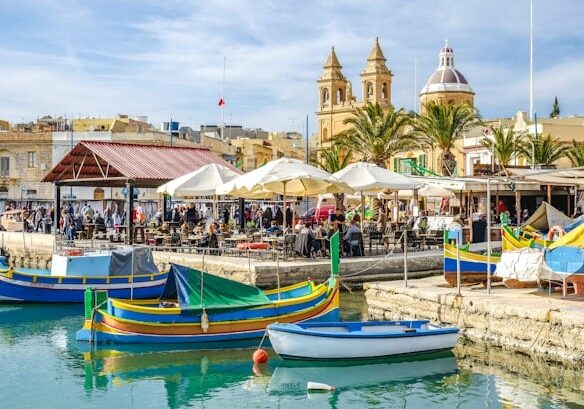
Fund: National Development and Social Fund (NDSF)
Minimum donation: €600,000 (main applicant) for citizenship after 36 months or €750,000 for accelerated citizenship after 12 months of residency.
Malta’s Citizenship by Investment program operates one of the most prestigious and regulated in Europe. Applicants must make a non-refundable financial contribution to the National Development and Social Fund (NDSF), which supports initiatives in public health, education, social housing, and innovation.
In addition to the donation, applicants are required to:
- Invest in government-approved organization.
- Rent or purchase real estate in Malta (held for at least five years).
- Hold legal residency for 12 to 36 months (depending on donation level).
Despite the more complex requirements, Malta offers EU citizenship, allowing holders to live, work, and travel freely across all 27 EU member states. The program also includes strict due diligence and background checks to maintain integrity and international compliance.
How Can Global Citizen Solutions Help You?
Global Citizen Solutions is a boutique migration consultancy firm with years of experience delivering bespoke residence and citizenship by investment solutions for international families. With offices worldwide and an experienced, hands-on team, we have helped hundreds of clients worldwide acquire citizenship, residence visas, or homes while diversifying their portfolios with robust investments.
We guide you from start to finish, taking you beyond your citizenship or residency by investment application.

